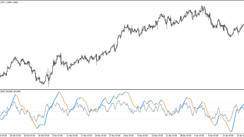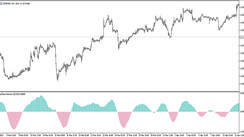Understanding The Core Idea of Fundamental Analysis
Fundamental analysis is the process of examining a security's intrinsic value by analyzing crucial indicators. It includes evaluating factors such as the company's financial condition, its competition within the industry, and the overall global economic scenario. Analysts employing this technique believe that a security's price needs to accurately reflect its fundamental value. They leverage fundamental analysis to discover securities priced lower or higher than their real worth.
The Procedure of Fundamental Analysis
Performing fundamental analysis involves several stages: Accumulating data about a company's economic performance, including factors like earnings, revenue, liabilities, and cash stream. Examining the company's competitive standing, including details like market dominance, range of product or service, and pricing model. Evaluating the overarching economic circumstances, including considerations like inflation, interest rates, and overall economic growth. Collectively analyzing these factors to ascertain the company's worth.
Applications of Fundamental Analysis
While fundamental analysis is extensively used in assessing stocks, its utility extends to evaluating other forms of securities like bonds and currency. It proves especially beneficial in inequitable markets, where prices may not always represent the true value of a security. There, fundamental analysis serves as a guide for investors to pinpoint undervalued or overpriced securities.
Tools and Indicators for Fundamental Analysis
Numerous indicators and tools can aid in effective fundamental analysis. These include: Financial Statements: These offer precious insights into a company's financial health. Key among these are the income statement, the balance sheet, and the cash flow statement. Ratio Analysis: By comparing a company's financial health with its competitors through ratios like price-to-earnings, debt-to-equity, and return on equity, an investor can gain better insights. Industry Analysis: Knowing the competitive dynamics of an industry can be enlightening. Factors like the number of competitors, growth opportunities of the industry, and entry barriers are crucial to understand.
The Impact Of Fundamental Analysis On Trading
Fundamental analysis can influence trading by helping to identify overpriced or underpriced securities. Such knowledge can guide trading decisions like purchasing or selling securities. Moreover, fundamental analysis can be instrumental for investors to comprehend the risks associated with specific securities and to form effective risk management strategies.
Supporters Of Fundamental Analysis
Several respected figures advocate for the value of fundamental analysis: Benjamin Graham: A key figure in the field of fundamental analysis, Graham propagated that investors should concentrate on the intrinsic value of a security over its market price. Warren Buffett: One of the wealthiest individuals globally, Buffett is a proponent of fundamental analysis, relying heavily on it for his investment decisions. Peter Lynch: Lynch, a mutual fund manager with a successful track record, suggests that fundamental analysis can help spot high-quality companies selling at a discount.
Conclusion
Fundamental analysis offers a powerful method for investors, aiding them in distinguishing underpriced or overpriced securities, comprehending the risks associated with a chosen security, and formulating risk management strategies. However, it's essential to note that fundamental analysis isn't infallible. There exist unpredictable factors, and markets often behave inconsistently. Therefore, it's wise to supplement fundamental analysis with other techniques such as technical analysis.





